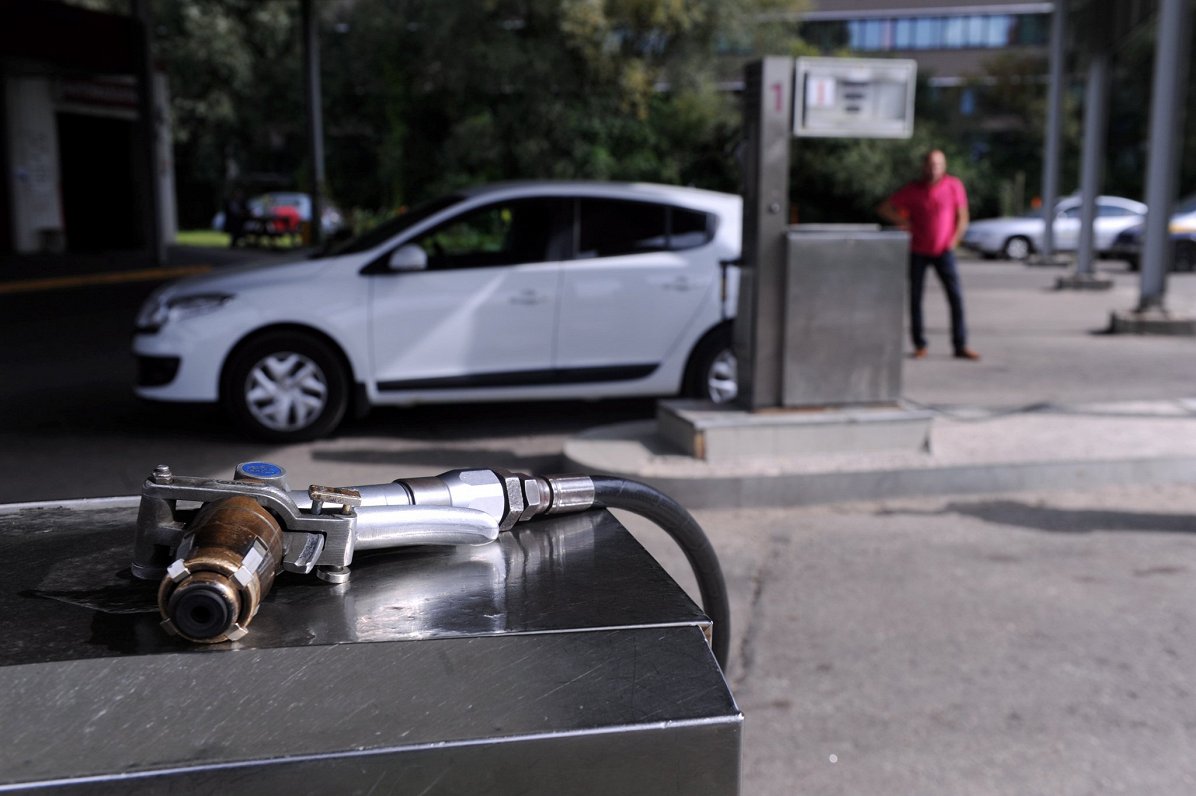With investments of European funds in the expansion of gas transmission system, Latvia is preparing to begin producing biomethane, which the Ministry of Economics considers to be a forward-looking and easy-to-use type of green energy. However, the interests of both the gas business lobby and the interests of past mandatory procurement component (OIK) recipients – biogas stations – are also clearly visible behind this initiative, reported De Facto.
Biomethane will be included in the common gas transmission. However, the market of the new product will be guaranteed with the European recovery money. Latvia will purchase biomethane-powered firetrucks, school buses and agricultural machinery.
"It is clear that the system currently in force, the mandatory procurement component (OIK) system operating in biogas plants, will be completed in the near or future. It is not clear to me how we are dealing further with this manure [for biogas] (…)," said Minister of Agriculture Chair of Bureau Jānis Eglīts (National Alliance).
Although Eglīts addressed the question of where to keep manure, specially grown plants, such as maize, have also been used for the purposes of biogas. It is not livestock farmers but the owners of biogas plants that are among the most active supporters of the biomethane development program. Andis Kārkliņš, Chairman of the Board of the Latvian Biogas Association, said it is “because, first of all, we are prevented from producing electricity. It is not permitted in the natural form. (..) OIK, I can tell you for sure, will be lost in a year and a half, just because those laws are inadequate.”
Here, opportunities are being sought by a business that flourished thanks to OIK payments. The plan provides for the possibility of converting existing biogas plants into biomethane producers, but provide consumption by subsidizing the purchase of a gas-powered car.
“It is clear that they [biogas stations] have to find further uses, because to build something and leave it only because this OIK system ended, it is not sustainable and not right either,” Eglīts said.
In December last year, the Minister for Agriculture, the President of Latvia, the Prime Minister, Ministers for Transport, Economics and Environment, received a memorandum calling for a wider use of biomethane in the transport sector. The signatories of the document include biogas producers, vehicle makers and fuel stations, the management of two gas companies, as well as the association Vide rītdienai (Environment for Tomorrow).
Latvijas Gāze Board Chair Aigars Kalvītis said: "This is a new business segment that will grow in Europe over the coming decades. And we are interested, even though this segment is developing in Latvia. Because more and more customers in Western Europe are interested in greening methane and greening natural gas. So it could be one section of our business in the future, in which we would also market biomethane.”
In order to produce biomethane, already existing biogas plants need to install millions of devices and equipment. It will have co-financing from the cash of the current period of the European funds.
In the coming year, Economics Ministry should establish a system of guarantees of biomethane origin that will allow it to be introduced into the existing gas transmission system and to track consumption. Biomethane equivalent to modern biofuels will be allowed to be produced from manure or biological waste.
When comparing green energy for transport, EM estimates show that the cost of biomethane and electricity is roughly similar. However, it is also mentioned that gas can cover longer distances and can also be used in freight transport.
The Latvian plan foresees that biomethane or other advanced biofuels would make up 3.5% of all fuel in ten years.
According to EM, there is no cause for concern about a new payment similar to OIK. Because fuel traders would have to comply with their duty in any case, in the Ministry's opinion, biomethane produced in Latvia would be cheaper than imported.
Using the money from the European Recovery, Renewal and Resilience Mechanism to recover following the Covid-19 crisis, for €40 million, Latvia will purchase vehicles that can only be filled with biomethane.
Half of that amount will go to the Interior Ministry, which will buy 48 road tankers and six laddered vehicles for the State Fire and Rescue Service.
A further ten million are for farms and businesses for the purchase of new biomethane-powered machines or for the transport of biomethane produced. Ten million more – for municipalities to purchase school buses. There will also be support for the purchase of equipment working in landfill sites, but not for waste collection machines.
Estimates suggest that the price of biomethane could be five times higher than for natural gas. However, the costs of biomethane produced in Latvia and the costs of maintaining this fleet are not yet clear. Neither is it known where these vehicles will be fueled.
If the necessary laws are adopted by the end of the year, the process itself to start production and transmission of biomethane will take longer. If the machines are already in place, but not the biomethane, it will have to be purchased from abroad. In such a case, there is a risk that the aid received will have to be repaid.





























